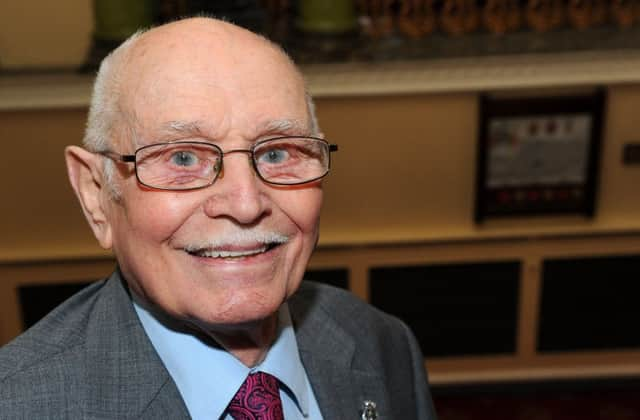Fred Peeters, Arctic Convoys survivor


He had endured half a dozen voyages, at least one on the cruiser HMS Sheffield, and had said they were unremarkable but for the punishing weather. But his final Arctic Convoy, on the last Royal Navy ship to be sunk during the war in Europe, nearly cost him his life.
Able Seaman Peeters was one of only 26 men to survive the sinking of the frigate HMS Goodall in April 1945 in the Kola Inlet.
Advertisement
Hide AdAdvertisement
Hide AdHis bravery led two years ago to his presentation with the Ushakov Medal by Russian officials at Doncaster’s Mansion House. It was his second medal in as many years, having been presented with the Arctic Star medal just after his 89th birthday.
Recalling the Goodall’s demise, he said: “We got a ping on our underwater detection device and went in to attack but we walked into a trap with U-boats on either side.
“A torpedo hit us and blew the ship in half because it hit the ammunition.
“I had just left the wheelhouse on the way to my action station’ when there was an almighty explosion and I was thrown on deck.
“I got up, rather dazed, and saw half the ship was missing.
Advertisement
Hide AdAdvertisement
Hide Ad“Ammunition was exploding all around me and as I crawled aft I could see limbs lying around. It was terrible, a duffle coat lay near me with just an arm in the sleeve.”
HMS Goodall didn’t sink straight away but as other Navy ships came to its aid the bow wave from one upturned the raft and one of Fred’s comrades was killed by the propellers.
“Once again we were up to our necks in the very cold water,” he said. “There were only four of us left then and luckily we were picked up by a Russian motor torpedo boat.
“I tried to move but couldn’t because my left leg had no feeling – all the skin had been taken off.
Advertisement
Hide AdAdvertisement
Hide Ad“One of the Russian sailors picked me up, I was stripped off, rubbed down with vodka and given some of it to drink, then laid across the diesel engine casing to warm up.”
He was treated in a Russian hospital before being shipped home.
In later life, he lived in Askern with his late wife, Gladys, and worked as a foreman.